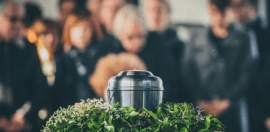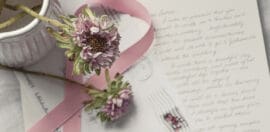We need to be physically distant, but we need to share our collective pain

30 March 2020 at 11:27 am
Self-isolation is not the crisis, it is the beginning of the crisis. We need to prepare for the sadness that will be thrust upon us, writes Tim Costello.
Like many people, I am re-reading The Plague by Albert Camus. I haven’t picked it up for years.
“The first thing the plague brought to our town was exile… It was undoubtedly the feeling of exile – that sensation of a void within which never left us… they drifted through life rather than lived, the prey of aimless days and sterile memories, like wandering shadows that could have acquired substance only by consenting to root themselves in the solid earth of their distress.”
We are bracing ourselves for the full force of a once-in-a-century pandemic that will hit us with the force of a tsunami in the coming weeks. We are watching the trailer with the devastating images from hospitals in Italy and emptied streets in Madrid, London and New York. The daily death tolls on our morning social media feeds haunt us like a shadow all day.
To keep each other safe, we are preparing to pay an unprecedented economic cost, closing entire sectors of the economy, wiping billions off our super and stocks, tens or even hundreds of thousands of people out of work.
But I’m concerned that over the coming weeks we fall into the trap of kidding ourselves this is the crisis, that the preparations and changes to our normal routines represent the full impact of this cruel virus.
Because this exile is not the crisis – it is the beginning of the crisis. We may have moved to higher ground, but the wave of illness and death is yet to hit. And when it comes, even in the best-case scenarios, tens of thousands of our fellow Australians will die alone or in crowded hospitals.
As we mobilise for actions on these fronts, I am concerned we are not preparing for the wave of grief that will have to be expressed alone in ways totally foreign to our natural instinct to come together and physically embrace each other.
How will someone mourn the passing of their parent if they can’t sit with them in their final hours? How will we mark the loss of friends and colleagues when we aren’t allowed the time and space to honour them? How will local communities cope when loved health workers die?
How do we prepare for the sadness that will be thrust upon us?
We must prepare to rediscover the art of lament.
Lament is one of those words that seems to have lost its meaning. Lament is not a label to put on a person or a situation – it’s the communal sharing of this grief, an act of solidarity that ensures no one needs to grieve alone, despite our physical distance.
If we are going to find a way to lament through the coming months, we need to start now by actively participating in our shared sense of exile. As Camus reminds us, it is about giving wandering shadows substance by rooting ourselves in the solid earth of our distress.
Sharing exile can take many forms but it starts with developing common rituals – whether it is joining in online church services or choral events freely available, lighting candles with friends across a Zoom meeting, clapping our valiant health workers on our doorstep at 8pm each evening or singing from balconies like the Lombards.
It’s also about meditating on what we are grateful for – family, friends, a room with a view – even in quarantine we need to find meaning in our lives, to know we are seen, that our pain is validated by others and to know we are loved.
At these times of lament, charities have always filled an important role – to organise the collective support for the one in need, anchored in a common benevolent love of humanity.
But even here the virus challenges us. Many of our charities are facing their own crises, first in the largely older volunteer force who do the work and, inevitably, facing a reduction in the amount of money people can afford to donate to support their work.
Some of these institutions may not survive, others will need to fundamentally rethink their delivery models, but what will remain constant is the need for the act of charity, that benevolent love of humanity, to sustain us.
That’s why the nation’s major charities are coming together to create a “Charities Cabinet” to advise the government on ways we can deliver all our citizens the basics of a roof, a meal, a sense of human connection and a reminder that in the midst of global mayhem every individual matters. Charities exist to prioritise the needs of the vulnerable; whether they have insecure housing, or no housing. All indeed matter. Charity is the old English word for inclusive love.
This is a moment in our shared humanity when we don’t know what happens next, but I suspect that we will need more than just an economic stimulus, we will need a stimulus in civility, in community and in charity that can only be generated from within, as we lament and then renew ourselves together.
In the words of Adam Lindsay Gordon, the 19th century maverick Australian poet and politician: “Life is mostly froth and bubble, Two things stand like stone. Kindness in another’s trouble, Courage in your own.”
These will be the saddest of times, but when it passes we will have the chance to rebuild our world on the charity in all of us.







